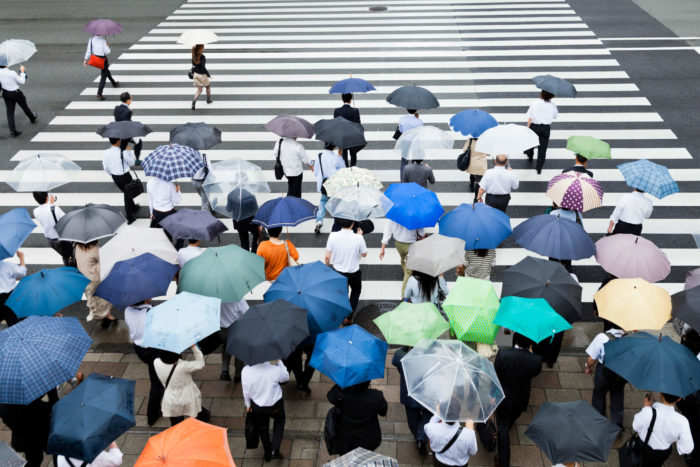
Diverse societies have equally diverse ideas about good service
Articles, Customer service, DiversityIn the previous articles discussing differing customer service standards in the UK and Japan I concluded that there was one fundamental cultural difference which may make it impossible for the UK to replicate Japanese customer service levels, namely that Japanese people are so acutely sensitive to how they are seen by other people around them.
Why are the Japanese more considerate of other people compared to the British or indeed many other nationalities? Many cultural commentators like to talk about Japan’s history as a rice growing nation based around cooperative “mura” or villages – in contrast to Western individualistic, opportunistic hunter gatherers. This not only ignores the fact that Europeans also farmed collaboratively to grow crops, but denies any possibility that cultures may change in the face of industrialisation and urbanization.
The more obvious explanation, less to do with ancient national history, is to what extent a community is diverse and fluctuating. Politeness and consideration is distinctly worse in London than in other communities in the UK in which I have lived. 40% of Londoners were not born in the UK, and the population is constantly changing as even the original British come and go, for work, education or family reasons. There is no incentive to be considerate to the people around you, as you will probably never meet them again. Also, with an ethnically diverse population, you will find equally diverse ideas about what constitutes politeness.
Although Japanese people originally had diverse ancestry, this dates back thousands of years ago and since then there has not been much in the way of immigration. There are still distinct regional differences in culture, behaviour and etiquette within Japan of course but across the nation a strong idea prevails, it seems to me, of what standard politeness and decent behaviour should be.
When you have diverse ideas about politeness coexisting, you get culture clashes, and people think the other person is being rude, even when the other person was trying to be polite. For example, in certain African cultures it is disrespectful to look a senior person in the eye when they are talking to you. This leads to British Afro-Caribbean youths getting into trouble with ethnically white British police who demand “look me in the eye when I am talking to you!”
When I was a student I took a summer job in a Kosher Chinese restaurant in London. I was pretty hopeless as a waitress. All the tricky stuff like cutting up and serving Peking Duck was left to the Chinese waitresses, but the Chinese idea of good service is to be efficient and expressionless, with no small talk. The Israeli owner of the restaurant hired me and an Iranian girl to provide the smiles and the chat and serve drinks. Our lack of skill did not matter so much as long as we were charming the customers. It was difficult to charm my way out of the time when I dropped a whole tray of iced Coca Cola in a male customer’s lap, however!
Related articles
The different meanings of psychological safety in Japan, Europe and North America
The concept of “psychological safety” in the workplace started in the United States in the 1960s and
Oh no, not another -hara! (harassment)
When I saw an article in the Nikkei Business magazine discussing kasuhara (customer harassment) in J
We hired some foreigners to be more diverse, but nothing has changed
“Our foreigners are more Japanese than the Japanese” is, as this article in Diamond says





